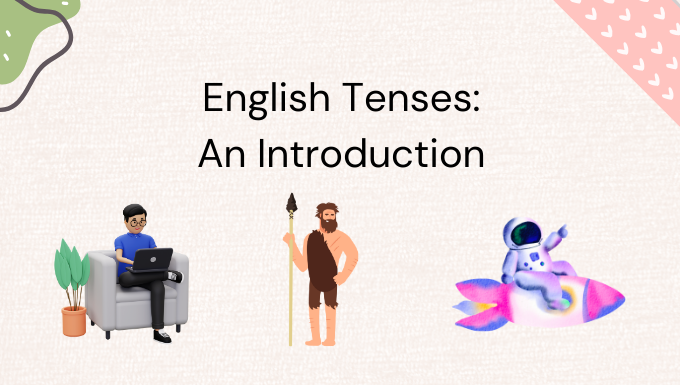
Table of Contents
English Tenses: Introduction
English tenses can be a bit perplexing, but fear not! In this comprehensive review, we will delve into the various tenses in English. Each tense has its own unique purpose and usage. We will not only provide definitions but also positive, negative, and question examples for better understanding. Let’s embark on this journey through the world of English tenses.
Present Simple Tense
Definition: The present simple tense is used for habits, general facts, and scheduled actions.
Positive Example: She goes to the gym every morning.
Negative Example: They do not like spicy food.
Question Example: Do you like to read?
Uses: This tense is commonly used for expressing routine activities, scientific facts, and timetables.
Present Continuous Tense
Definition: The present continuous tense is used to describe actions happening right now or around the present time.
Positive Example: I am watching a movie.
Negative Example: He is not eating dinner at the moment.
Question Example: Are they coming to the party tonight?
Uses: It is employed when discussing ongoing actions, temporary situations, or planned future arrangements.
Present Perfect Tense
Definition: The present perfect tense expresses actions that happened at an unspecified time before now or actions with a connection to the present.
Positive Example: She has visited that museum.
Negative Example: We haven’t seen that movie.
Question Example: Have you ever been to Paris?
Uses: It is used for experiences in life, events with relevance to the present, and unfinished actions.
Past Simple Tense
Definition: The past simple tense is used to talk about completed actions in the past.
Positive Example: They visited London last summer.
Negative Example: She didn’t like the food.
Question Example: Did you finish your homework?
Uses: It is employed to narrate past events, actions that occurred at a specific time, and historical facts.
Past Continuous Tense
Definition: The past continuous tense describes actions that were ongoing in the past or interrupted actions.
Positive Example: I was playing basketball when it started raining.
Negative Example: She was not listening during the meeting.
Question Example: Were they singing when you arrived?
Uses: It is used for actions that were in progress at a particular time in the past or for describing interruptions.
Past Perfect Tense
Definition: The past perfect tense is used to express actions that happened before another action in the past.
Positive Example: By the time I arrived, they had already left.
Negative Example: She hadn’t finished her book when the movie started.
Question Example: Had you ever visited that city before?
Uses: It is employed when it’s necessary to show the sequence of two past events.
Future Simple Tense
Definition: The future simple tense is used to express actions that will occur in the future.
Positive Example: I will call you tomorrow.
Negative Example: They will not attend the conference.
Question Example: Will you be at the party tonight?
Uses: It is used for predictions, promises, and planned actions in the future.
Future Continuous Tense
Definition: The future continuous tense is used for actions that will be ongoing at a specific time in the future.
Positive Example: This time next week, I will be on vacation.
Negative Example: She won’t be working on Sunday.
Question Example: Will they be studying at that time?
Uses: It is employed to discuss actions in progress at a future point in time.
Future Perfect Tense
Definition: The future perfect tense is used to describe actions that will be completed before a specific point in the future.
Positive Example: By the end of the year, I will have graduated.
Negative Example: She will not have finished her project by then.
Question Example: Will you have completed the assignment by tomorrow?
Uses: It is used for actions that will be finished before a future time.
Conclusion
Understanding English tenses is vital for effective communication. Each tense serves a unique purpose, and knowing when and how to use them enhances your language skills.
FAQs
- Is it essential to memorize all the English tenses perfectly? While it’s helpful, you can communicate effectively with a basic understanding of English tenses. Practice will improve your proficiency.
- Are there exceptions to tense rules in English? English, like many languages, has some irregular verbs that do not follow standard tense rules.
- Can tenses change within a single sentence? In complex sentences, it is possible to switch tenses to convey different time relationships.
- What is the best way to learn and practice English tenses? Reading, writing, and speaking in English are excellent ways to practice and improve your grasp of tenses.
- Is it okay to mix different English tenses in a story or essay? Yes, mixing tenses can add depth and variety to your writing, but it should be done purposefully to avoid confusion.